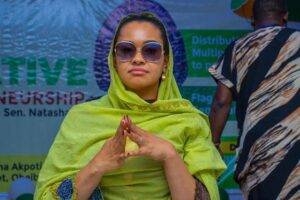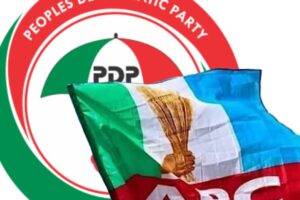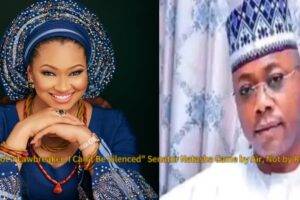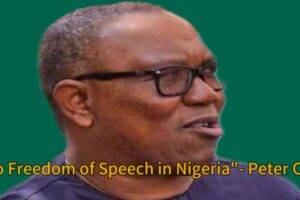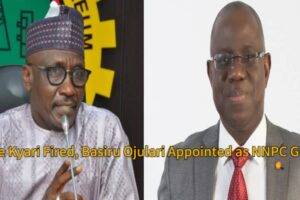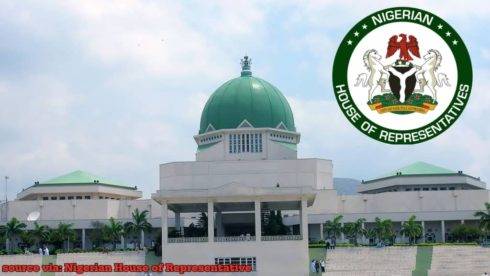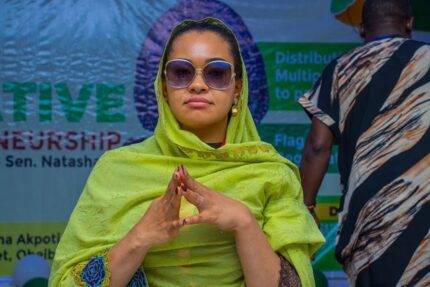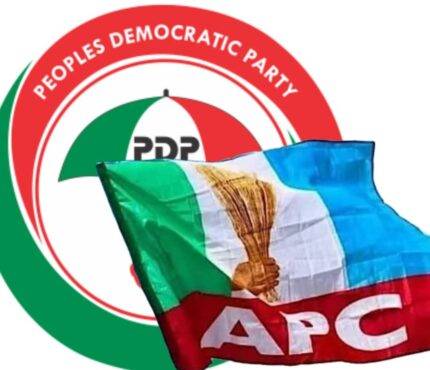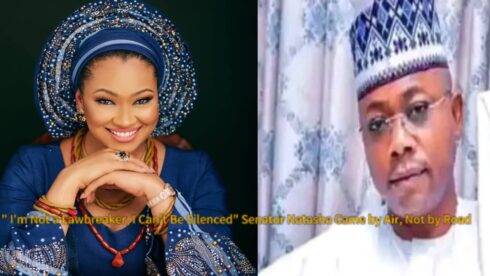Proposed Electoral Amendment Faces Rejection in Nigeria’s House of Representatives
In a recent session, the House of Representatives engaged in extensive deliberations over a pivotal proposal brought forth by Awaji-inombek Abiante, a prominent member hailing from Rivers State and affiliated with the People’s Democratic Party (PDP). This proposal targeted a crucial aspect of the electoral process, specifically addressing the threshold for presidential and gubernatorial candidates to attain victory by securing over 50% of the votes cast. Amidst mounting anticipation, the proposal encountered a decisive moment as the representatives convened to weigh its implications. Despite the proposal’s potential to reshape the electoral landscape, garnering attention nationwide, it encountered formidable resistance within the chambers.
Despite its underlying significance, the proposed legislative amendment faced a resolute rejection from members of the House of Representatives, signaling a contentious divide on the envisioned changes. The deliberations underscored the intricate dynamics shaping Nigeria’s political landscape, where divergent viewpoints clashed over fundamental electoral principles. As the proposal sought to redefine the criteria for electoral success, the outcome of this debate reverberated across the nation, sparking conversations on the intricacies of democratic governance and the pursuit of electoral integrity. Amidst the fervent discourse, the rejection of the proposed amendment illuminated the complex interplay of interests and ideologies within Nigeria’s legislative framework, leaving a lasting imprint on the trajectory of electoral reforms in the country.
Strengthening Electoral Legitimacy in Nigeria: Awaji-inombek Abiante’s Proposal: House of Representatives
In a bid to enhance the credibility and inclusivity of Nigeria’s electoral process, Awaji-inombek Abiante has put forth a groundbreaking proposal aimed at addressing the longstanding issue of legitimacy and representativeness. Central to this proposal is the requirement for presidential and gubernatorial candidates to secure more than 50% of all votes cast, significantly raising the threshold for victory. By advocating for this amendment to the 1999 constitution, Abiante seeks to instill a more robust criterion for electoral success, ensuring that winning candidates garner widespread support across diverse segments of the electorate. Such a measure holds the potential to foster greater trust in the electoral outcomes and pave the way for a more representative governance structure in Nigeria.
Through the elimination of the simplistic majority requirement, Abiante’s bill endeavors to usher in a new era of electoral competition characterized by broader consensus-building and genuine grassroots support. By mandating a higher threshold for victory, the proposal aims to deter the proliferation of fragmented electoral outcomes and instead incentivize candidates to engage in comprehensive outreach efforts to secure widespread backing. Consequently, this proposed amendment has the potential to reshape the dynamics of political competition in Nigeria, fostering a political landscape where elected leaders truly embody the aspirations and interests of the populace they serve.
Navigating Controversy: Assessing the Proposal’s Impact on Electoral Dynamics
In the hallowed chambers of the House of Representatives, a spirited discourse unfolded as members grappled with a proposal laden with noble intentions yet mired in controversy. The crux of the debate centered on the proposition to elevate the threshold for electoral triumph, a move perceived by proponents as a catalyst for bolstering the legitimacy and authority vested in elected officials. Advocates envisioned a landscape where heightened electoral standards would engender a more robust system of governance, underpinned by heightened accountability and amplified representation.
However, amidst the fervent exchanges, dissenting voices emerged, voicing apprehensions about the practical ramifications of such a measure. Skeptics raised poignant questions regarding its enforceability and the potential ramifications on the intricate tapestry of democracy, injecting a sobering note into the discourse and prompting a deeper exploration of its repercussions.
As the deliberations unfurled, the fissures within the House of Representatives became increasingly evident, mirroring the broader societal divide regarding the proposed amendment. While some champions hailed it as a beacon of progress, others cast a skeptical gaze, apprehensive of the ripple effects it could unleash upon the democratic fabric. The crux of the matter lay in striking a delicate balance between aspirations for enhanced governance and the preservation of democratic ethos. Ultimately, the proposal stood at the crossroads of idealism and pragmatism, beckoning stakeholders to navigate the terrain of controversy with sagacity and foresight, cognizant of the intricate interplay between policy ambition and practical exigencies.
Proposed Legislation and Constitutional Implications
The proposed legislation presents profound constitutional implications, notably in its attempt to revise electoral norms entrenched under Nigeria’s 1999 constitution. Focused primarily on altering the criteria for victory in both presidential and gubernatorial elections, the bill aspires to redefine the fundamental tenets of democratic governance within the nation. By addressing pivotal aspects of electoral processes, such as thresholds for victory, the legislation reflects a significant endeavor to modernize and adapt Nigeria’s electoral landscape to contemporary socio-political dynamics.
The House of Representatives’ rejection of the proposal underscores a deliberate choice to uphold the existing electoral framework, thereby preserving the status quo concerning electoral prerequisites and procedures. This decision represents a reaffirmation of the foundational principles embedded in Nigeria’s democratic governance system, signaling a commitment to continuity rather than embracing potentially transformative alterations. While the proposed legislation aimed to instigate substantial changes, its dismissal by the House of Representatives reinforces the stability and resilience of Nigeria’s electoral processes, ensuring consistency and familiarity in electoral practices for the foreseeable future.
Mixed Reactions to Abiante’s Proposal Rejection By House of Representatives
The recent rejection of Awaji-inombek Abiante’s proposal has sparked a flurry of responses from both the public and stakeholders, revealing a spectrum of opinions across Nigeria’s political spectrum. While certain sectors of society applaud the decision as a staunch defense of democratic values and norms, others lament it as a lost chance to usher in much-needed electoral reforms and bolster democratic governance. This divergence of reactions underscores the intricate and often contentious terrain of electoral reform discussions in Nigeria, highlighting the ongoing tug-of-war between upholding democratic principles and addressing practical realities within the nation’s political framework.
The polarized responses to Abiante’s rejected proposal illuminate the complex dynamics at play within Nigeria’s political landscape, where the quest for electoral reform intersects with broader debates about the country’s democratic trajectory. As stakeholders weigh in on the decision, the discourse surrounding electoral reforms continues to underscore the delicate balance between theoretical ideals and pragmatic considerations. Indeed, the varying perspectives on this issue serve as a microcosm of the larger challenge facing Nigerian policymakers: how to navigate the intricate interplay between democratic aspirations and the practical realities of governance in a diverse and evolving society.
Future Prospects: Continuing Dialogue on Electoral Reform
Despite the recent rejection of the proposal to revise electoral thresholds in the House of Representatives, Nigeria’s political landscape continues to grapple with the imperative of electoral reform. The refusal of this specific amendment does not diminish the significance of ongoing discussions surrounding the enhancement of electoral processes. In the ever-evolving journey of democracy, Nigeria recognizes the critical importance of continuous evaluation and refinement of its electoral framework to ensure transparency, fairness, and inclusivity.
The rejection of the electoral threshold revision proposal does not mark the end but rather catalyzes further dialogue and deliberation on electoral reform in Nigeria. This setback serves as a catalyst for heightened public awareness and engagement in shaping the future trajectory of democratic governance. The enduring conversation on improving the integrity and inclusiveness of the electoral system is poised to influence forthcoming legislative endeavors and fuel broader societal discourse on the fundamental principles of democracy.
Table of Contents
Discover more from OGM News NG
Subscribe to get the latest posts sent to your email.

